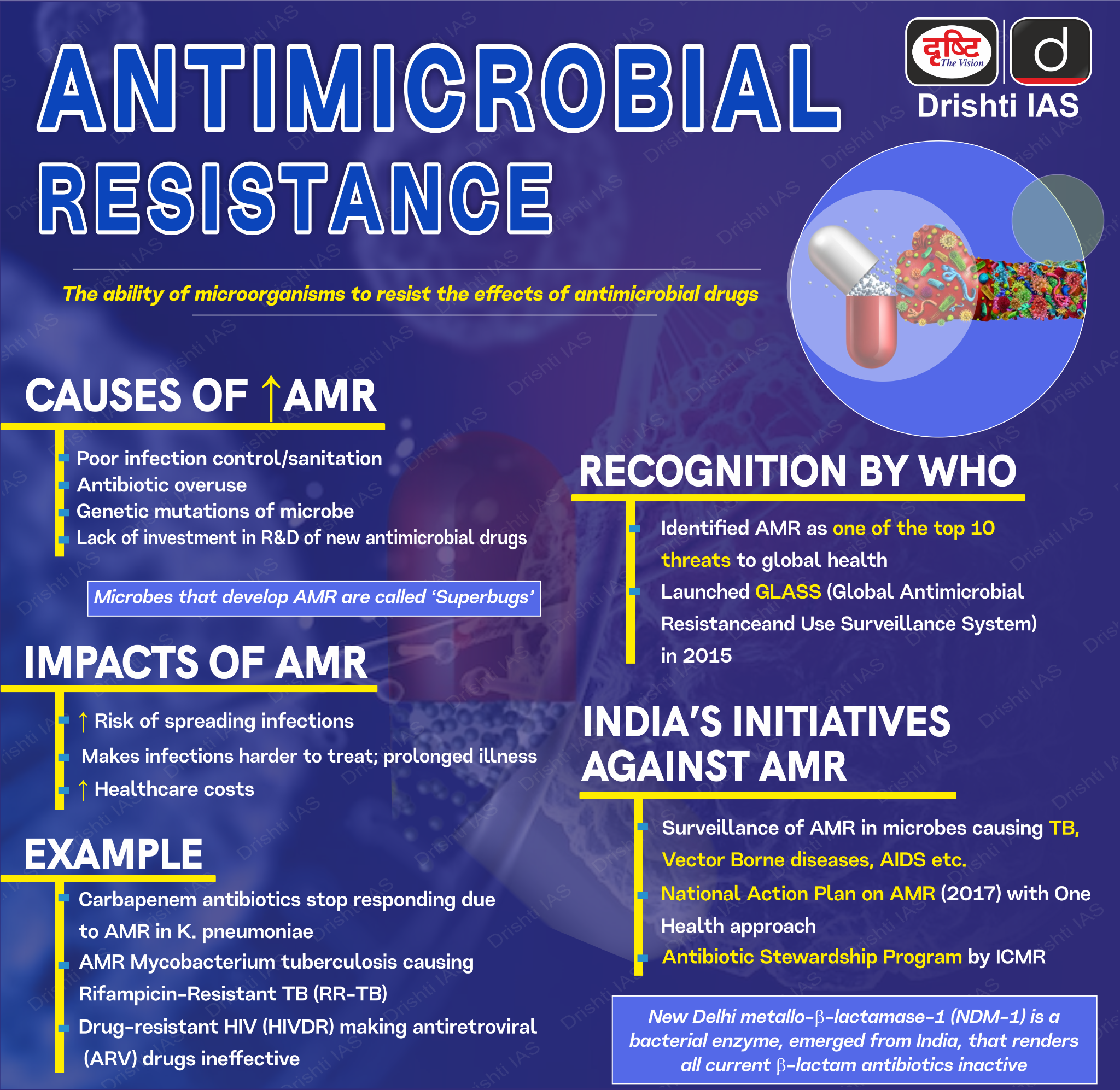Multi-drug Resistant Pathogens in ISS | 14 Jun 2024
Why in News?
Recently, a collaborative study between scientists from the Indian Institute of Technology Madras (IIT-M) and NASA’s Jet Propulsion Laboratory (JPL) focused on understanding the behaviour of multi-drug resistant pathogens aboard the International Space Station (ISS).
What are the Key Highlights of the Study?
- Enterobacter bugandensis is associated with hospital-acquired infections and poses a significant treatment challenge due to its broad resistance to third-generation antibiotics like cephalosporins and quinolones.
- It is listed by the World Health Organization (WHO) as a priority for developing new antimicrobials.
- The ISS's unique environment of microgravity, heightened carbon dioxide, and increased radiation revealed accelerated mutations that differentiate them genetically and functionally from their Earth counterparts.
Antimicrobial Resistant-Microbes
- Antimicrobial-resistant microbes occur naturally and are found in people, animals, food, and the environment (in water, soil and air).
- They can spread between people and animals, including from food of animal origin, and from person to person.
- AMR is facilitated by the inappropriate use of medicines, for example, using antibiotics for viral infections such as the flu.
International Space Station
- The ISS is a large spacecraft that orbits Earth at a low altitude (approx 250 km), hosting astronauts from various countries who live and work there.
- It serves as a research laboratory where scientific experiments are conducted in microgravity conditions, advancing our understanding of space and benefiting life on Earth.
- The International Space Station is currently managed by the US, Russia, Canada, Japan, and European space agencies.
- Since 2000, the station evolved from an outpost into a highly capable microgravity laboratory.
- Since 2000, the ISS has transformed from a basic outpost into an expansive microgravity research facility, accommodating over 260 people from 21 countries, with plans for research until 2030.
UPSC Civil Services Examination, Previous Year Question (PYQ)
Prelims:
Q. Which of the following are the reasons for the occurrence of multi-drug resistance in microbial pathogens in India? (2019)
- Genetic predisposition of some people
- Taking incorrect doses of antibiotics to cure diseases
- Using antibiotics in livestock farming
- Multiple chronic diseases in some people
Select the correct answer using the code given below.
(a) 1 and 2
(b) 2 and 3 only
(c) 1, 3 and 4
(d) 2, 3 and 4
Ans: (b)
Mains
Q. Can overuse and free availability of antibiotics without Doctor’s prescription, be contributors to the emergence of drug-resistant diseasesin India? What are the available mechanisms for monitoring and control? Critically discuss the various issues involved. (2014)

